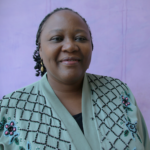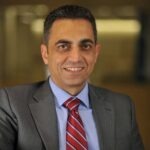Equip Yourself with Life Skills for Free with These Youth Skills Building Sessions
WI-HER Youth Skills Building Sessions
World Youth Skills Day, which takes place annually on July 15th, was established by the United Nations General Assembly in 2014 to celebrate the strategic importance of equipping young people with skills for employment, decent work, entrepreneurship, and more. To celebrate this day, WI-HER staff developed a range of free skills-building sessions that can help individuals, including youth, prepare themselves for the world of work and gain new perspectives on a range of topics.
The capacity-building sessions below contribute to improving skills in communication, leadership, collaboration, and more.
Identifying Signs of Gender-based Violence and Understanding Your Options for Seeking Support
Learning objectives:
- Understand the four forms of gender-based violence
- Identify the signs of gender-based violence
- Understand your options for seeking support
Description:
Gender-based violence impacts individuals of all genders, backgrounds, and ages. Survivors of violence are at risk of lifelong negative impacts on health and well-being, reduced economic and educational opportunities, and more. Youth are particularly vulnerable. Dr. Taroub Harb Faramand—President and Founder of WI-HER and expert on gender-based violence and human trafficking—leads this Youth Skills Building session on how to identify the signs of gender-based violence and shares options for safely seeking help and receiving support.

Speaker: Dr. Taroub Harb Faramand (President and Founder)
How to Prepare a CV: Google Docs as a Collaboration Tool
Learning Objectives:
- Adequately prepare a CV that gets you to the next step in the application process using Google Docs.
- Learn to tailor a CV for a job application’s specific requirements.
Description:
A quality, well-written CV is key to standing out from the competition, and knowing how to write a CV is critical throughout your career. In this Youth Skills Building Session with Program Manager Claire Karlsson and Diversity, Equity, and Inclusion Associate Stacey Nandudu, learn about the collaboration capabilities of Google Docs through a demonstration/simulation between two friends as they develop a CV and tailor it to a specific job posting. Attendees will appreciate the importance of collaboration when it comes to developing a CV and witness firsthand how to use Google Docs collaboration tools to their fullest potential. This session is great for youth entering the job market as well as individuals looking to switch jobs, even if they have limited work experience.


Speakers: Claire Karlsson (Senior Associate, Global) and Stacey Nandudu (Diversity, Equity, and Inclusion Coordinator)
Why Your Story Matters: Building Connections in Development Work
Learning Objectives:
- Learn how to tell stories that ‘stick’
- Discover how to share your mission and the work you do through stories
- Get ideas on how to turn a ‘fact’ into a ‘story’
Description:
In the international development world, facts are important to convey successes and progress, but they do not build relationships; stories do. When stories are personal and well told, your audience feels connected to you and your work. Stories are memorable; they stick with us long after the storyteller has said ‘the end.’ We often think of stories as the purview of novelists and journalists, but stories are all around us, in all aspects of our work and lives. In this Youth Skills Building Session with Knowledge Management Associate Elizabeth Kemigisha and Communications Manager Liz Hall, learn about why facts might give information but don’t “stick” with people for long, why creative writing is an asset in our work, and get ideas on how to connect with people online, even if you’ve never met before. Participants will also receive insights on how to tell stories in an ethical and safe way in the development sector.


Speakers: Elizabeth Kemigisha (Associate, Knowledge Management) and Liz Hall (Associate, Communications)
Intro to Miro Board Basics
Learning Objectives:
- Create a Miro board and navigate how to use tools
- Familiarize yourself with Miro’s interfacing to customize and collaborate
Description:
During this 20-minute skills-building session with Business Development Manager, Rachel Gutierrez, you will be introduced to Miro, an online collaborative whiteboard platform. In this session, learn how to create a board as well as use the board interface and its tools. Miro can be used for a number of use cases, such as strategy & planning, workshops & meetings, and brainstorming. Becoming familiar with Miro can elevate how you and your team turn ideas–as well as thoughts and processes–into visual resources.

Speaker: Rachel Gutierrez (Manager, Business Development)
Critical Thinking and Identifying Reliable Information Sources
Learning Objectives:
- Learn to describe the characteristics of effective deductive and inductive reasoning.
- Detect logical fallacies in moral, political, and scientific arguments.
- Apply new skills to COVID-19 misinformation.
Description:
Every day in the news and media, we are bombarded with attempts to persuade us to think or act in certain ways, buy certain brands, or trust certain sources of information. In this session with Krista Odom, learn to identify the skills involved in “critical thinking”— the objective analysis and evaluation of an issue in order to form a judgment (“Critical Thinking,” 2021). The central goal of this discussion is to empower you to think more objectively and analytically about what you hear and believe, both online and off.
Secondarily, learn how to be more effective in identifying reliable sources of information. After this session, participants will recognize and avoid common barriers to critical thinking—including bias, groupthink, and ideology. Critical thinking is important in both our personal and professional lives as it helps us think creatively and problem solve. At the end of the discussion, Krista will ask participants to apply the material to real-world issues, such as COVID-19 misinformation.

Speaker: Krista Odom (Associate, West Africa)
Applying the Community Action Cycle (CAC) Approach to Mobilize for a Cause
Learning Objectives:
- Learn the steps to working in partnership to conduct a community mobilization effort using the Community Action Cycle (CAC).
- Discover how to apply the steps to mobilize a community for action
Description:
Community development has the potential to change the world because it means people are taking action to solve common problems that affect the places they live and work every day; youth play a vital role in this process.
Developed by Save the Children, the Community Action Cycle (CAC) is a community mobilization approach that fosters individual and collective action to address key health program goals and related outcomes. It is a process that can be applied in any context for increasing access to and demand for health services, especially where gender and other socio-cultural barriers exist, through sustained community participation.
Community mobilization often requires that we work together to achieve a common goal, and when youth are involved, they can help guide their peers, children, and even adults, all while working together with other members of the community. During this Youth Skills Building session with Gender, Social Inclusion, and Community Engagement Advisor Helen John, learn how to mold community ownership and achieve sustained collective action even beyond a project’s life. In this session, youth also learn how their involvement in communities is key to influencing neighborhood activities and working with elected officials and professionals to build better communities for everyone.

Speaker: Helen John (Gender, Social Inclusion, and Community Engagement Advisor)
Managing your Money: Lessons and Strategies
Learning objectives:
- Learn the importance of managing your money with budgeting basics
- Discover strategies for tracking and saving your money
Description:
Understanding how to manage your money is vital to achieving your financial goals. Whether you’re looking to save for a down payment for a home or build up your savings account for emergencies, budgeting is a skill that will serve you throughout your life. In this Youth Skills Building Session with Director, Finance and Administration Sam Kasbari, learn the basics of budgeting along with strategies for saving money. You will also learn the importance of distinguishing between needs and wants as you plan for your financial future. This session also highlights various ways of tracking your expenses and income and managing your finances.

Speaker: Sam Kasbari (Director, Finance and Administration)